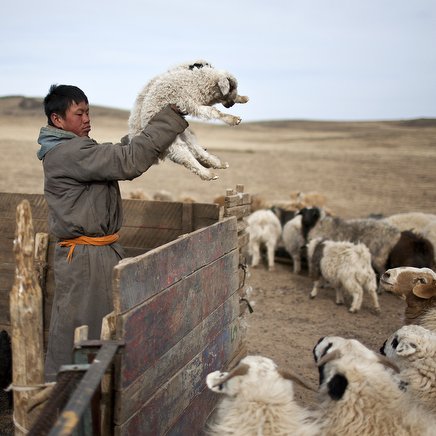Mongolia: China-backed Erdeneburen dam allegedly threatens traditional pastoralist livelihoods

Photo credit: Wikimedia Commons.
"Opinion: Still time to rethink Mongolia’s biggest dam to date" 22 June 2022
In April, construction was due to start on Mongolia’s largest hydropower plant to date. The Erdeneburen hydropower plant is planned to be built on the Khovd River in western Mongolia, in an ecologically sensitive area of a national park. [...]
Construction is due to be carried out by state-owned Chinese engineering company PowerChina, and it is being financed through a USD 1 billion soft loan given by China in 2014. However, as of 2 June construction has not started: the relevant authorities in China are hesitating since local communities communicated their concerns via the embassy in Mongolia. [...]
The government has set aside 28,000 hectares of land for the reservoir for the Erdeneburen project, which will flood the lush river basin territories of four settlements in three provinces. About 270 nomadic pastoralists and over a million livestock will be forced to seek new pastures. The degradation of pasture, due to increased pressure from displaced communities, loss of traditional livelihoods, and potential tribal conflicts over pasture and water access may lead to secondary negative impacts on the Ramsar wetlands.
The reservoir will flood the best pastures of Uliast Bagh, an administrative unit in Uvs province, displacing the entire community of 112 pastoralist households. In November 2021, herders traveled 1,540 km to the capital Ulaanbaatar to protest against the project, while others expressed their opposition on social media.
The response of the ruling Mongolian People’s Party was to announce that it will speed up the restoration of voided mining licences and large “development projects”, lifting all requirements for permitting – which includes discounting the opinion of local governments in the process of land allocation.
Luvsannamsrain Oyun-Erdene, Mongolia’s prime minister, expressed warnings to those protesting against post-Covid-19 economic recovery projects. S Byambatsogt, an MP, specifically threatened to investigate individuals opposing the Erdeneburen project. [...]
Project documents are not publicly disclosed on the official website for the Erdeneburen hydropower project. An incomplete environmental and social impact report disregards international best practice and calls for an assessment of impacts on migratory fish, wetlands and wildlife to be postponed until the project’s construction phase – when little can be done to mitigate them. Furthermore, affected pastoralist communities were not consulted for the report on where and how they will be resettled, or how their traditional livelihoods will be protected. [...]